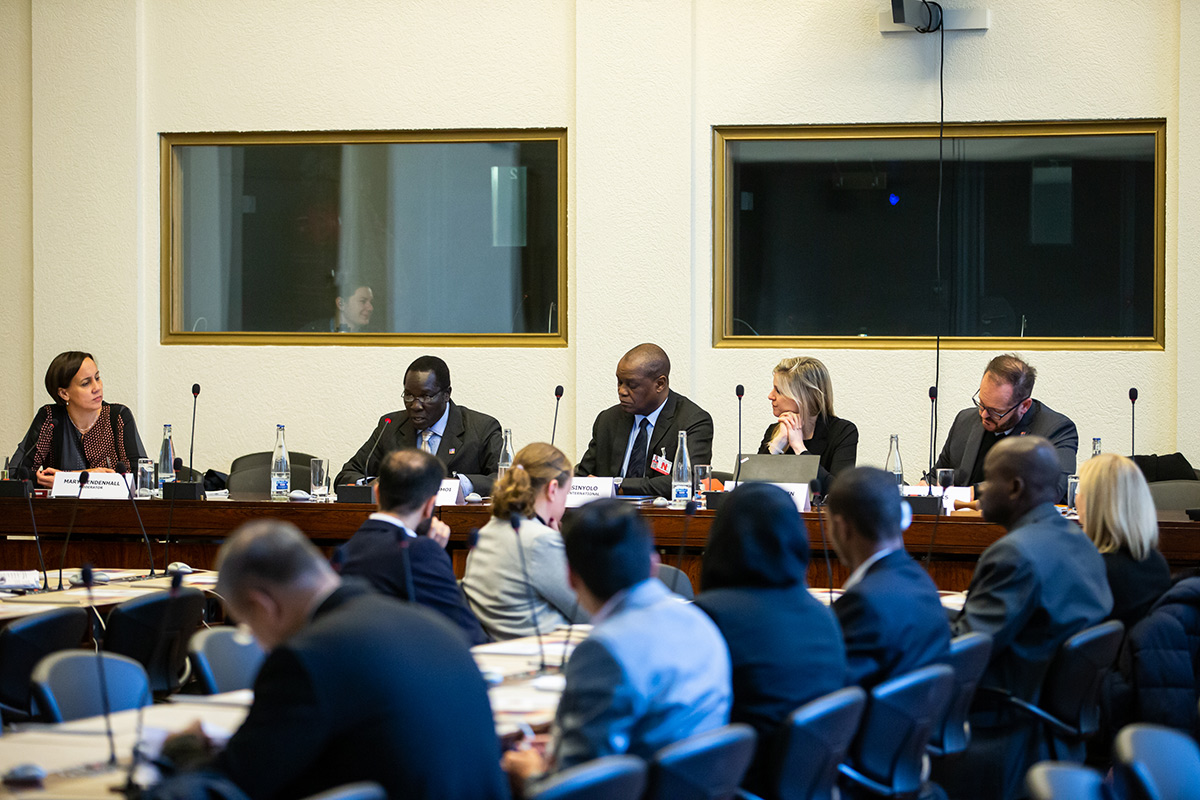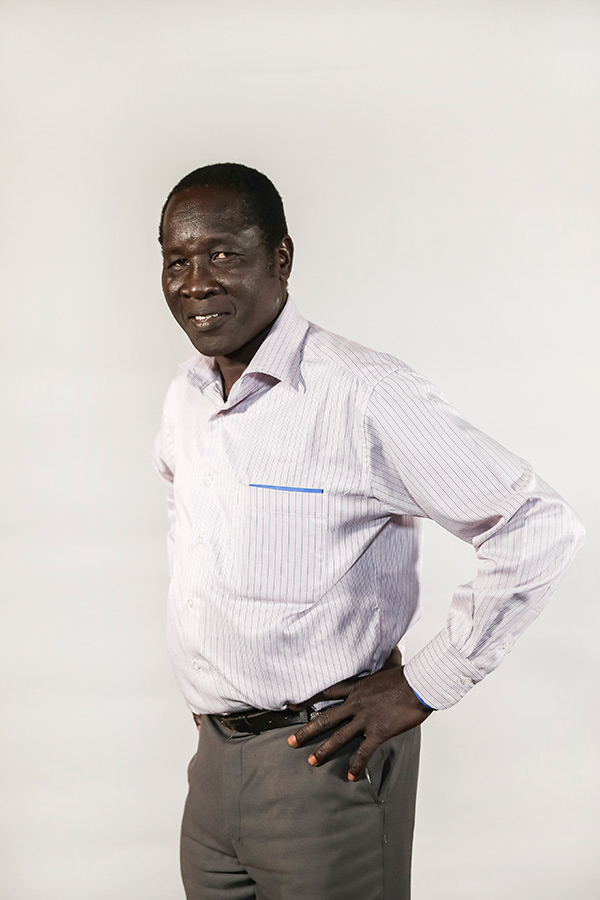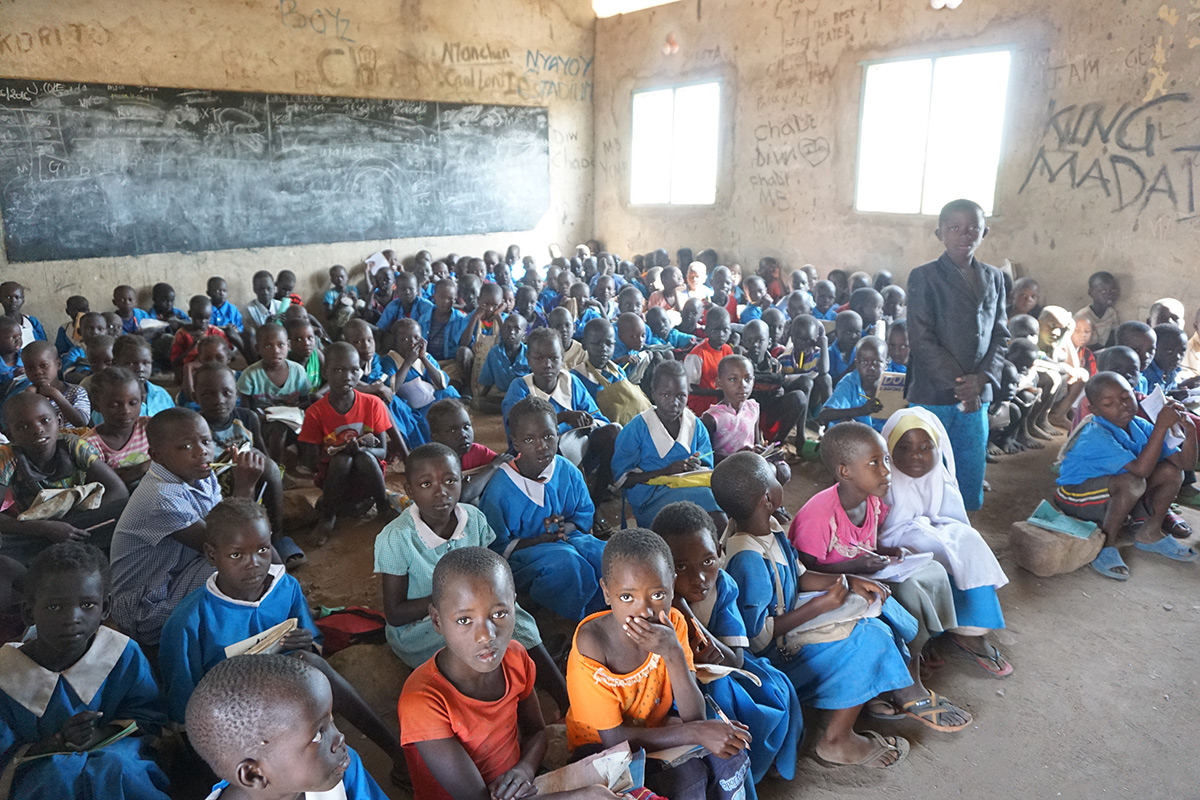The effort to provide meaningful education to millions of refugee youth worldwide has made major strides in recent years, but without “significant and sweeping changes to better support teachers working in contexts affected by crisis, displacement or natural disasters,” it will fail to enhance refugees’ ultimate self-reliance and ease the pressure on host countries.
That was the message delivered this past week at the Global Refugee Forum by Mary Mendenhall, Associate Professor of Practice in Teachers College’s International and Transcultural Studies Department and Director of the College’s International and Comparative Education Program. Many other leaders echoed Mendenhall’s view at the event, which was held in Geneva under the auspices of the United Nations High Commissioner for Refugees, and was co-sponsored by Teachers College.

THE CASE FOR SUPPORT Mendenhall (far left) led a panel in Geneva on why the future of refugee education hinges on better supporting teachers. Also present (second from right) was TC alumna Charlotte Bergin (M.A.'15), Coordinator, Capacity Building at Inter-agency Network for Education in Emergencies. (Photo: @UNHCR/Pierre Albouy)
Mendenhall, who moderated a panel discussion titled “Teachers Shoulder the Burden: Improving Support in Crisis Contexts” (the Forum’s only session focused on teaching), has been one of the world’s driving forces in refugee education. During the past several years, as part of the Teachers in Crisis Contexts Collaborative of the Inter-agency Network for Education in Emergencies (INEE), she has spearheaded Teachers for Teachers, a research-based teacher professional development initiative operating in Kakuma Refugee Camp, Kenya, that delivers teacher training, coaching, and mobile mentoring. The method and open-source materials developed by Mendenhall and her students to train and support refugees as teachers is now in use in 20 nations worldwide. Mendenhall is currently leading a four-year research study on teacher and student well-being in northern Uganda and South Sudan.
“Major improvements” are needed to “support robust and continuous professional development opportunities for teachers [of refugees], to value their contributions through equitable compensation structures that ensure a livable wage, and to provide pathways toward professional certification that are recognized across borders.”
—Mary Mendenhall
Fortunately, there is growing momentum around better supporting refugee education. In December of 2018, the United Nations General Assembly affirmed the Global Compact for Refugees. Premised on the recognition that a sustainable solution to refugee situations cannot be achieved without international cooperation, the Compact provides a blueprint for governments, international organizations, and other stakeholders to ensure that “host communities get the support they need and that refugees can lead productive lives.” The Compact seeks to ease the pressures on host countries; enhance refugee self-reliance; expand access to third-country solutions; and support conditions in countries of origin for return in safety and dignity.

ON-THE-GROUND PERSPECTIVE Robert Ochan Leomoi, a refugee from Uganda who has taught for years in a camp in Kenya, described the conditions that he and other teachers contend with. (Photo: @UNHCR/Andrew McConnell)
But the world’s displaced population is now larger than at any time since World War II, and with a focus on food and shelter, only 2 percent of humanitarian aid is spent on education – even though the average displacement period is now between 10 and 26 years. As a result, “many migrants in poorer countries end up in slums with limited access to a free education,” said Manos Antoninis, director of the Global Education Monitoring Report at UNESCO, in a statement released at the Global Refugee Forum. “In richer countries they are often segregated into schools in disadvantaged neighborhoods.”
Robert Ochan Leomoi, a panelist in the discussion led by Mendenhall who has lived and taught as a refugee in Kenya’s Dadaab Refugee Complex, for a number of years, said that as a teacher, he has faced challenges that include threats to his physical safety, food insecurity, outdated textbooks and other poor resources, poor compensation, bureaucratic barriers that prevent the professional advancement of refugee teachers, and overcrowded classrooms in which the average student-to-teacher ratio is 90 to 1.
Most teachers are untrained and work based on what they learned as students in the classroom. There is no critical thinking about content and learners aren’t learning.
—Robert Ochan Leomoi
Also, “most teachers are untrained and work based on what they learned as students in the classroom,” Leomoi said. “There is no critical thinking about content and learners aren’t learning.”
Mendenhall called for “major improvements” to “support robust and continuous professional development opportunities for teachers, to value their contributions through equitable compensation structures that ensure a livable wage, and to provide pathways toward professional certification that are recognized across borders.”
The Forum’s panel discussion was the prelude to a larger event that Mendenhall and colleagues at INEE, UNESCO, Education International, and Oxfam are planning on teachers in crisis contexts that will be held during the coming year. Meanwhile, the Forum triggered more than $350 million in pledges from participating organizations to improve refugees’ access to learning.
